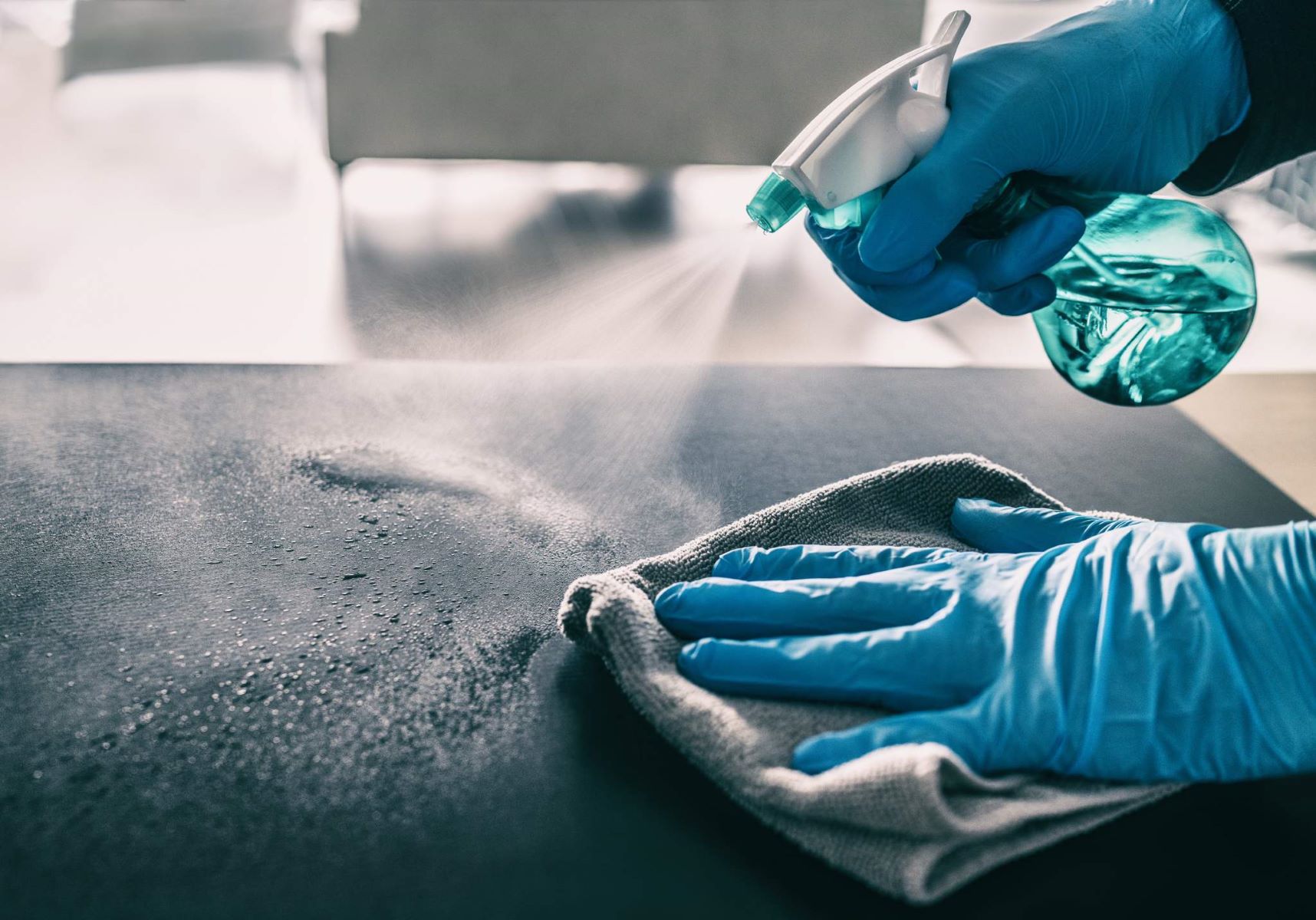

Articles
How Do You Clean Quartzite Countertops
Modified: January 18, 2024
Learn effective techniques to clean and maintain your quartzite countertops with our informative articles. Keep your countertops looking pristine with our expert tips and advice.
(Many of the links in this article redirect to a specific reviewed product. Your purchase of these products through affiliate links helps to generate commission for Storables.com, at no extra cost. Learn more)
Introduction
Quartzite countertops are becoming increasingly popular for their beauty, durability, and low maintenance. Made from natural quartzite stone, these countertops offer a unique blend of elegance and strength that can transform any kitchen or bathroom space. However, like any surface, quartzite countertops require regular cleaning to keep them looking their best.
In this article, we will explore the dos and don’ts of cleaning quartzite countertops, the tools and supplies you will need, and provide you with step-by-step instructions to ensure a thorough cleaning process. Additionally, we will share tips on how to remove tough stains and spills, as well as preventive maintenance practices to keep your countertops in pristine condition.
Whether you’ve recently installed quartzite countertops or simply want to improve your cleaning routine, we’ve got you covered. So let’s dive in and discover the best ways to clean and maintain your quartzite countertops!
Key Takeaways:
- Keep your quartzite countertops looking pristine by using mild, pH-neutral cleaners and avoiding abrasive materials. Follow gentle cleaning techniques and preventive maintenance to ensure long-lasting beauty and functionality.
- Promptly address tough stains and spills on your quartzite countertops with gentle cleaning methods. Incorporate sealing, using cutting boards and trivets, and regular cleaning into your maintenance routine for optimal results.
Read more: What Are Quartzite Countertops
Understanding Quartzite Countertops
Before we delve into the cleaning process, let’s first understand what quartzite countertops are and why they are gaining popularity among homeowners and designers alike.
Quartzite is a natural stone that is formed from sandstone and quartz under extreme heat and pressure. This process leads to a metamorphosis of the stone, resulting in a new material known as quartzite. The surface of quartzite countertops typically showcases a beautiful array of colors, patterns, and veining, making each countertop unique.
One of the main reasons why quartzite is a preferred choice for kitchen and bathroom countertops is its exceptional hardness and durability. It is harder than granite, making it highly resistant to scratches and etching. This quality ensures that your countertops will remain in excellent condition even with daily use.
Another attractive feature of quartzite countertops is their resistance to heat. Quartzite has been formed under intense heat and pressure, allowing it to withstand high temperatures without damage. This makes it an ideal choice for those who love to cook or entertain in their kitchen.
Furthermore, quartzite is a non-porous material, meaning it does not absorb liquids or stains. This makes cleaning spills and messes much easier, as they can be quickly wiped away without leaving any trace.
It is important to note that while quartzite is highly durable, it is not completely impervious to damage. Like any natural stone, it is still susceptible to chipping and cracking from sharp objects or heavy impacts. Therefore, it is essential to handle your quartzite countertops with care to avoid any accidental damage.
Now that we have a better understanding of quartzite countertops and their qualities, let’s move on to the dos and don’ts of cleaning them.
Cleaning Dos and Don’ts
Proper cleaning is crucial for maintaining the beauty and longevity of your quartzite countertops. By following these dos and don’ts, you can ensure that your countertops remain in pristine condition:
Do:
- Wipe up spills immediately: Quartzite is non-porous, but it’s still a good practice to clean up spills as soon as possible to prevent them from penetrating the surface and potentially causing staining.
- Use mild, pH-neutral cleaning solutions: Avoid harsh chemicals, abrasive cleaners, and acidic substances such as vinegar and lemon juice. Instead, opt for gentle, non-abrasive cleaners specifically formulated for natural stone surfaces.
- Use a soft cloth or sponge: When cleaning your countertops, use a soft cloth or sponge to avoid scratching the surface. Microfiber cloths are particularly effective in capturing dust and debris.
- Rinse thoroughly and dry: After cleaning, rinse the countertops with clean water to remove any residue. Dry the surface using a soft cloth to prevent water spots and streaks.
- Use cutting boards and trivets: Protect your quartzite countertops from scratches and heat damage by using cutting boards for food preparation and trivets or hot pads for placing hot pans and dishes.
Don’t:
- Don’t use abrasive scrubbing pads or brushes: Avoid using abrasive materials that can scratch the surface of your quartzite countertops. Stick to soft cloths and sponges for cleaning.
- Don’t place hot pans directly on the surface: While quartzite is heat-resistant, it is still best practice to use trivets or hot pads to protect the countertop from extreme heat.
- Don’t use acidic or harsh cleaners: Acidic cleaners and harsh chemicals can etch the surface of quartzite, causing dullness and damage over time. Stick to pH-neutral cleaners specifically designed for natural stone.
- Don’t use excessive force when cleaning: Gentle cleaning is sufficient to maintain quartzite countertops. Avoid applying excessive force or scrubbing vigorously as it can lead to scratches or wear down the protective sealant.
- Don’t use bleach or ammonia-based products: These strong chemicals can cause discoloration and other damage to your quartzite countertops. Stick to mild, non-abrasive cleaners.
By incorporating these cleaning dos and don’ts into your routine, you can ensure that your quartzite countertops remain beautiful and long-lasting for years to come.
Read more: How Much Are Quartzite Countertops
Cleaning Tools and Supplies
Having the right tools and supplies is essential for effectively cleaning quartzite countertops without causing any damage. Here are the recommended cleaning tools and supplies you will need:
1. Soft Cloth or Sponge:
Choose a soft cloth or non-abrasive sponge to clean the surface of your countertops. This will help prevent scratching or damaging the quartzite.
2. pH-neutral Stone Cleaner:
Invest in a pH-neutral stone cleaner specifically formulated for natural stone surfaces like quartzite. Avoid using abrasive or acidic cleaners as they can damage the stone’s surface.
3. Warm Water:
Warm water is an essential component of the cleaning process. It helps to remove dirt and grime from the surface of the countertops.
Read more: How To Maintain Quartzite Countertops
4. Microfiber Cloth:
Consider using a microfiber cloth for cleaning and drying your quartzite countertops. Microfiber is gentle on the surface and effectively captures dust particles and debris.
5. Plastic Scraper:
If you encounter any dried-on or stubborn residues, a plastic scraper can be used to gently remove them. Be careful not to apply excessive pressure that could scratch the surface.
6. Soft-bristled Brush:
A soft-bristled brush can come in handy for cleaning hard-to-reach areas or seams on your countertops. Make sure the bristles are gentle and won’t scratch the quartzite.
7. Sealant (if required):
Some quartzite countertops may require periodic sealing to maintain their resistance to stains and moisture. Check with the manufacturer’s recommendations or consult a professional to determine if your countertops need to be sealed.
By having these cleaning tools and supplies readily available, you’ll be well-equipped to keep your quartzite countertops looking spotless and beautiful.
Read more: How Do You Clean Laminate Countertops
Step-by-Step Cleaning Instructions
Follow these step-by-step instructions to properly clean your quartzite countertops:
Step 1: Clear the countertops
Remove any items or objects from the surface of the countertops to ensure easy access for cleaning.
Step 2: Wipe down the surface
Take a soft cloth or sponge and dampen it with warm water. Gently wipe down the entire surface, removing any loose dirt, crumbs, or debris.
Step 3: Prepare the cleaning solution
If using a pH-neutral stone cleaner, follow the instructions on the bottle to prepare the solution. Dilute the cleaner with water as recommended.
Read more: How Do You Clean Granite Kitchen Countertops
Step 4: Apply the cleaning solution
Dampen a soft cloth or sponge with the prepared cleaning solution. Begin wiping the surface of the countertops in a gentle, circular motion. Ensure that the cleaning solution covers the entire surface.
Step 5: Clean hard-to-reach areas
For areas with seams or corners, use a soft-bristled brush to gently scrub the surface. Be careful not to use excessive force that could cause scratches.
Step 6: Rinse the countertops
Once you have cleaned the entire surface, rinse the countertops thoroughly with clean, warm water. This will remove any remaining residue or cleaner from the surface.
Step 7: Dry the countertops
Using a clean, dry microfiber cloth, gently dry the countertops to prevent water spots or streaks. Ensure that the surface is completely dry before placing any objects back on it.
By following these step-by-step instructions, you can effectively clean your quartzite countertops and maintain their longevity and beauty.
Read more: How Do You Clean Butcher Block Countertops
Removing Tough Stains and Spills
Even with proper cleaning and maintenance, accidents happen, and tough stains or spills may occur on your quartzite countertops. Here are some tips on how to tackle these stubborn stains:
1. Food and Beverage Stains:
If you have spills from coffee, wine, or other food and beverage items, it’s important to act quickly. Blot the spill with a soft cloth or paper towel, avoiding any rubbing or spreading of the stain. If the stain persists, create a paste of baking soda and water and gently rub it onto the stain. Let it sit for a few minutes before rinsing and drying the area thoroughly.
2. Oil-based Stains:
If you have oil-based stains from cooking oils or grease, remove any excess with a plastic scraper or blot with a paper towel. Sprinkle some baking soda or cornstarch on the stain and let it sit for a few hours to absorb the oil. Scrub gently with a soft cloth or sponge soaked in a gentle stone cleaner. Rinse and dry the area well.
3. Rust Stains:
If you notice rust stains on your countertops, avoid using typical rust removers, as they may damage the surface. Instead, make a paste using equal parts baking soda and water. Apply the paste to the rust stain and let it sit for a few hours. Gently scrub the area with a soft cloth or sponge and rinse thoroughly. Repeat the process if necessary.
Read more: What Do You Use To Clean Marble Countertops
4. Ink or Marker Stains:
If you have ink or marker stains on your quartzite countertops, rubbing alcohol can be effective in removing them. Dampen a cloth or sponge with rubbing alcohol and gently dab the stained area. Rinse thoroughly and dry the surface well.
Always test any cleaning solution or method on a small, inconspicuous area of your quartzite countertops before applying it to the stained area to avoid any potential damage or discoloration.
If you are unable to remove tough stains on your own, it is best to consult a professional stone cleaner or restoration specialist for professional assistance.
Remember, prompt action and gentle cleaning methods are key to effectively removing tough stains and spills from your quartzite countertops without causing any damage.
Preventive Maintenance Tips
Preventive maintenance is crucial in keeping your quartzite countertops in excellent condition and ensuring their longevity. Here are some essential tips to help you maintain the beauty and functionality of your countertops:
1. Sealing:
Check with the manufacturer’s recommendations or consult a professional to determine if your quartzite countertops need to be periodically sealed. Sealing helps enhance the stone’s resistance to stains and moisture, providing an added layer of protection.
2. Use Cutting Boards and Trivets:
Avoid cutting or chopping directly on the quartzite surface, as it can cause scratches. Always use cutting boards for food preparation, and use trivets or hot pads to protect the countertops from hot pans or dishes.
Read more: How Do You Remove Countertops
3. Avoid Harsh Chemicals and Abrasive Cleaners:
Avoid using acidic or abrasive cleaners on your countertops, as they can cause etching and damage to the quartzite surface. Stick to pH-neutral stone cleaners specifically formulated for natural stone surfaces.
4. Regular Cleaning:
Maintain a regular cleaning routine to prevent dirt, dust, and grime from building up on your countertops. Wipe them down daily with a soft cloth or sponge and use a gentle stone cleaner periodically to keep them looking pristine.
5. Handle With Care:
Quartzite is a durable material, but it is still susceptible to chipping or cracking from heavy impacts. Be cautious when placing heavy objects on the countertops to avoid any accidental damage.
6. Wipe Up Spills Immediately:
Quartzite is non-porous, but it’s still recommended to clean up spills promptly to prevent potential staining. Wipe away spills with a soft cloth or sponge as soon as they occur.
Read more: How Do You Seal Quartz Countertops
7. Avoid Excessive Force:
When cleaning your quartzite countertops, avoid applying excessive force or using abrasive materials. Gentle cleaning techniques and non-abrasive tools are sufficient to maintain the surface without causing any damage.
By following these preventive maintenance tips, you can keep your quartzite countertops in optimal condition and enjoy their beauty and functionality for many years to come.
Conclusion
Quartzite countertops are a stunning addition to any kitchen or bathroom, offering a combination of beauty, durability, and low maintenance. By understanding the nature of quartzite and following the proper cleaning and maintenance techniques, you can keep your countertops looking pristine and extend their lifespan.
In this article, we discussed the dos and don’ts of cleaning quartzite countertops, emphasizing the importance of using mild, pH-neutral cleaners and avoiding abrasive materials. We also provided step-by-step cleaning instructions to help you maintain a thorough and effective cleaning routine.
When dealing with tough stains and spills, we shared tips on how to address common culprits like food and beverage stains, oil-based stains, rust stains, and ink or marker stains. Remember to always test any cleaning solution on a small, inconspicuous area before applying it to the stained area.
Furthermore, preventive maintenance is key to keeping your quartzite countertops in top condition. Sealing, using cutting boards and trivets, regular cleaning, handling with care, and promptly wiping up spills are all essential practices to incorporate into your routine.
By following these guidelines and best practices, you can maintain the beauty and longevity of your quartzite countertops and enjoy their elegance and functionality for years to come.
Remember, when in doubt or dealing with stubborn stains, it is always recommended to consult a professional stone cleaner or restoration specialist for assistance.
Now that you have a comprehensive understanding of how to clean and maintain your quartzite countertops, you can confidently showcase their natural beauty in your home while keeping them looking their best.
Frequently Asked Questions about How Do You Clean Quartzite Countertops
Was this page helpful?
At Storables.com, we guarantee accurate and reliable information. Our content, validated by Expert Board Contributors, is crafted following stringent Editorial Policies. We're committed to providing you with well-researched, expert-backed insights for all your informational needs.

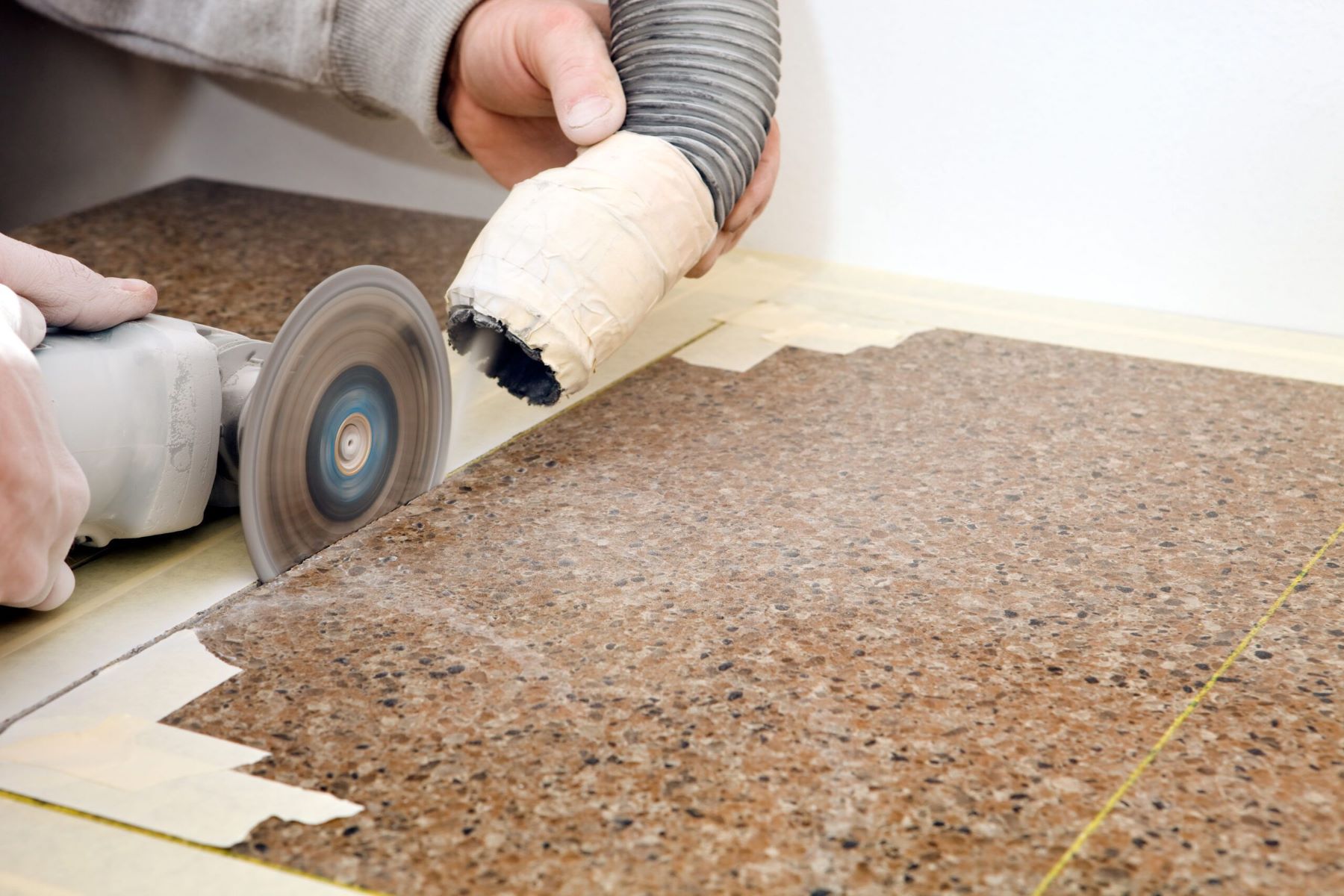
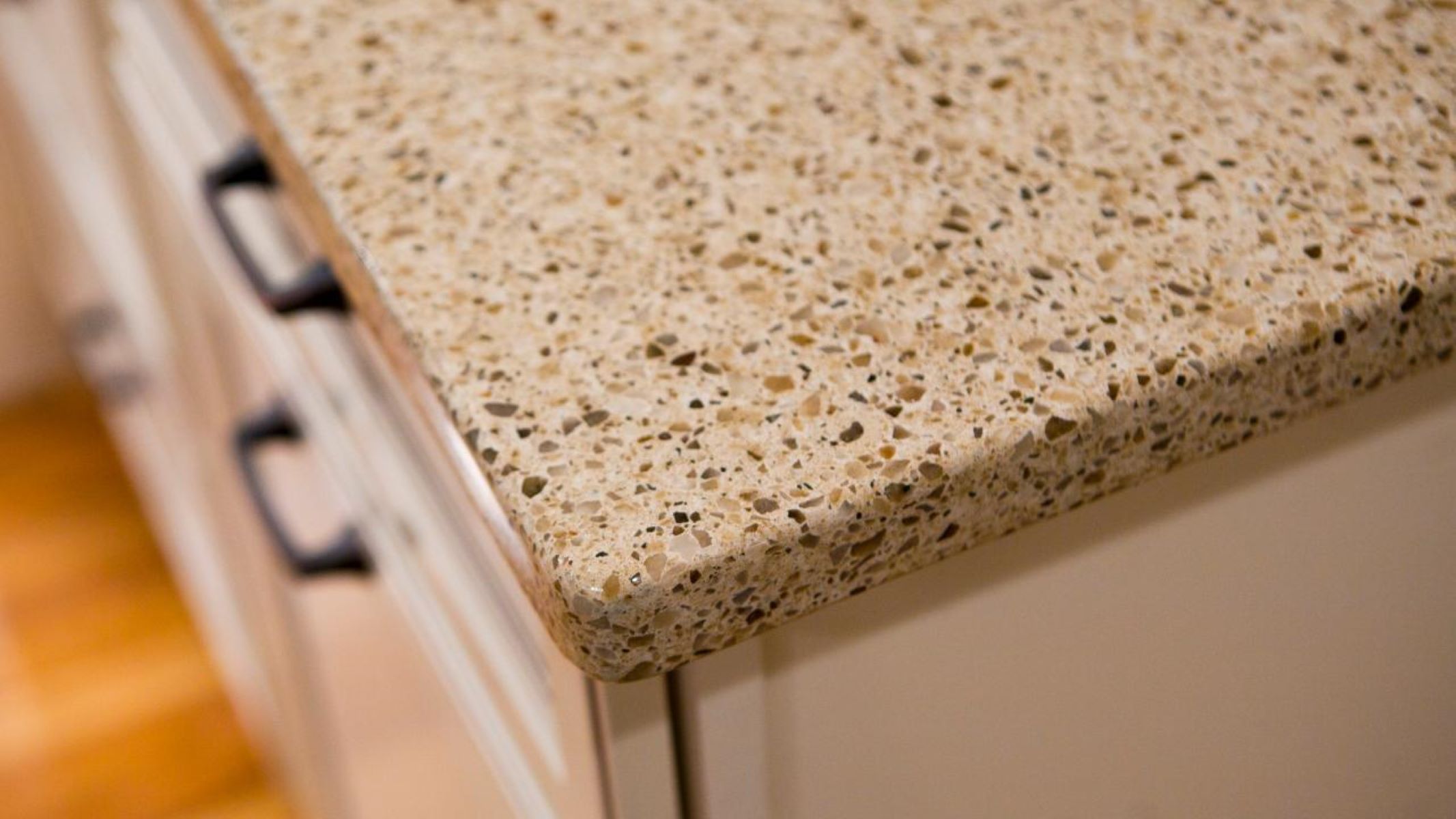
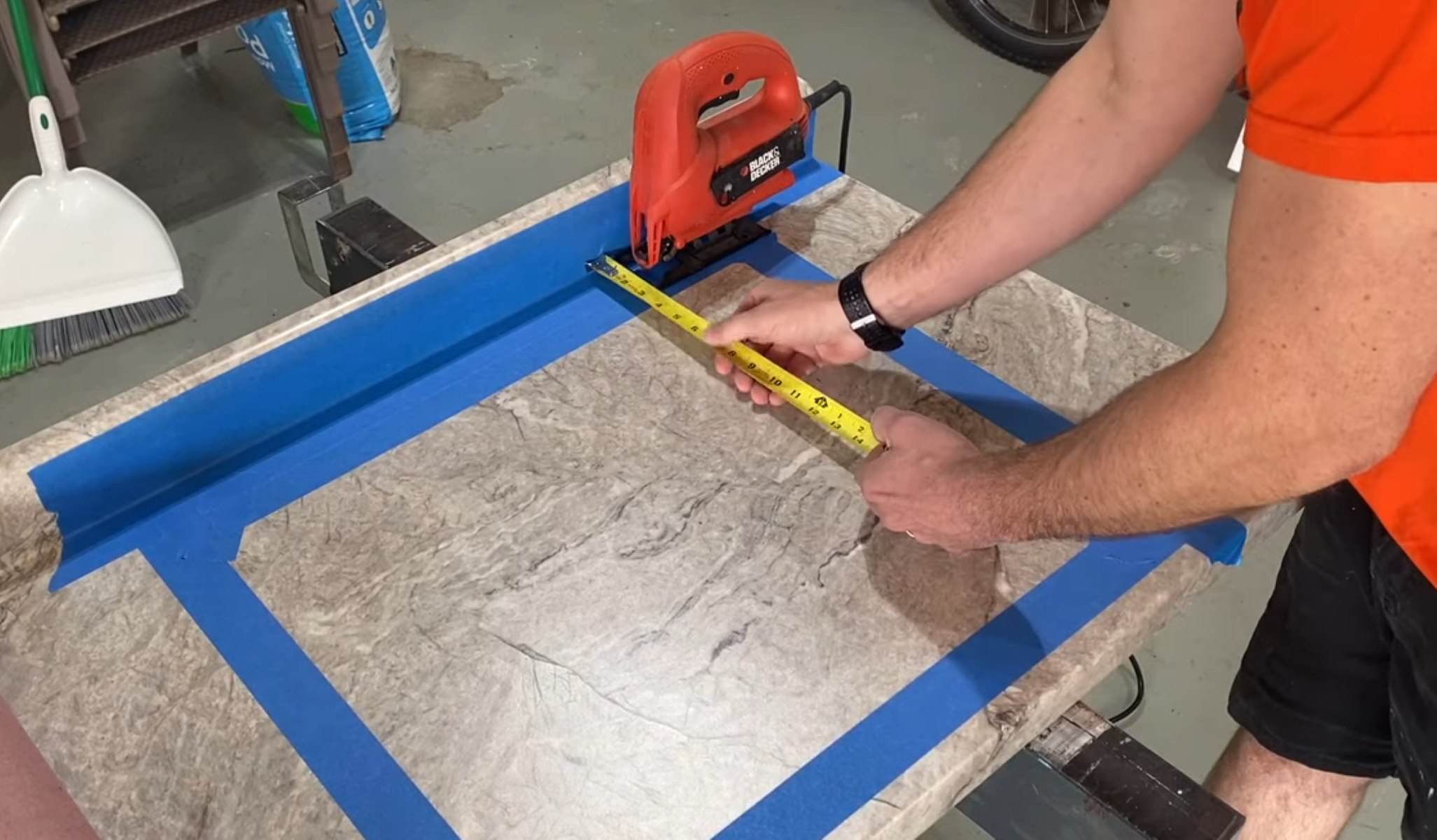
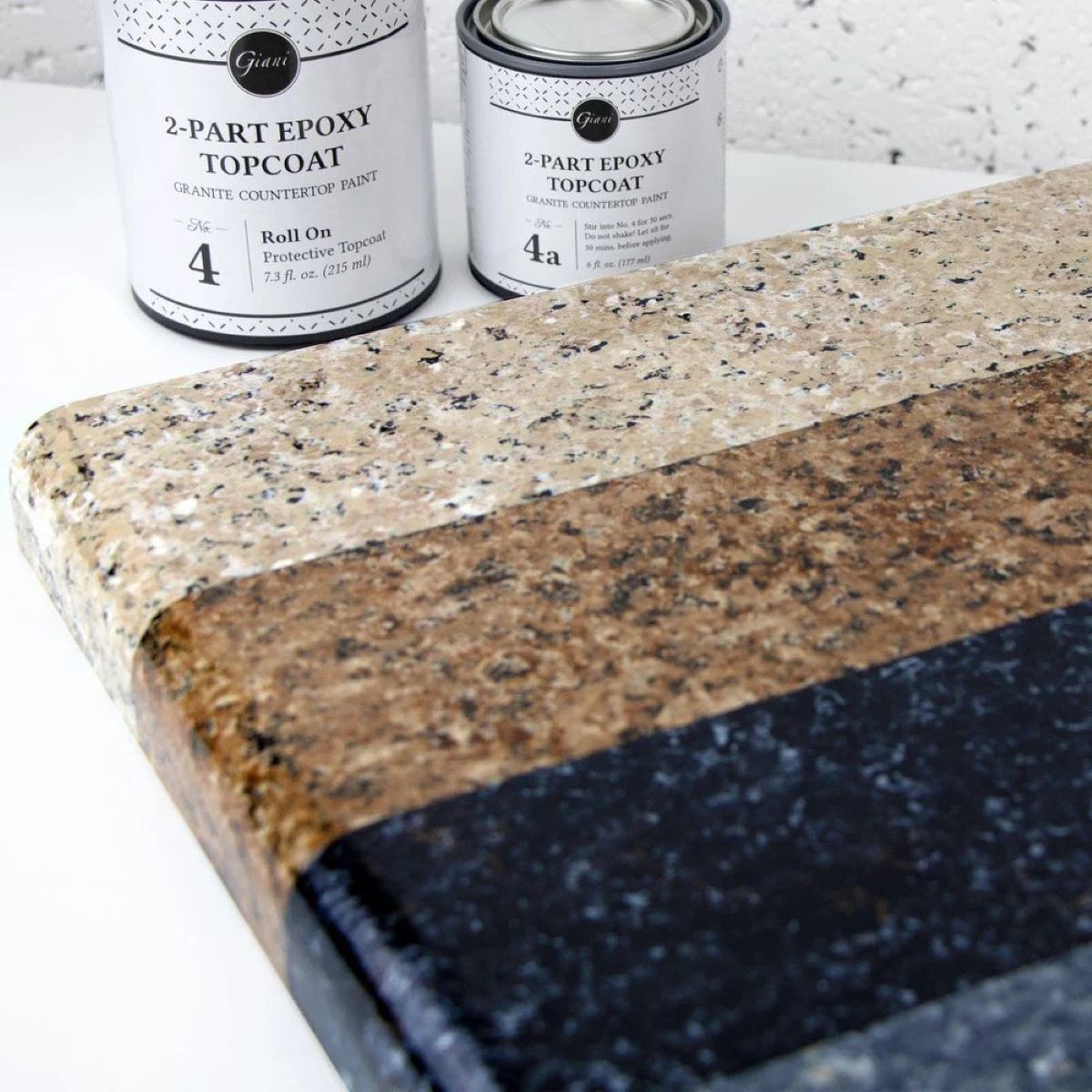
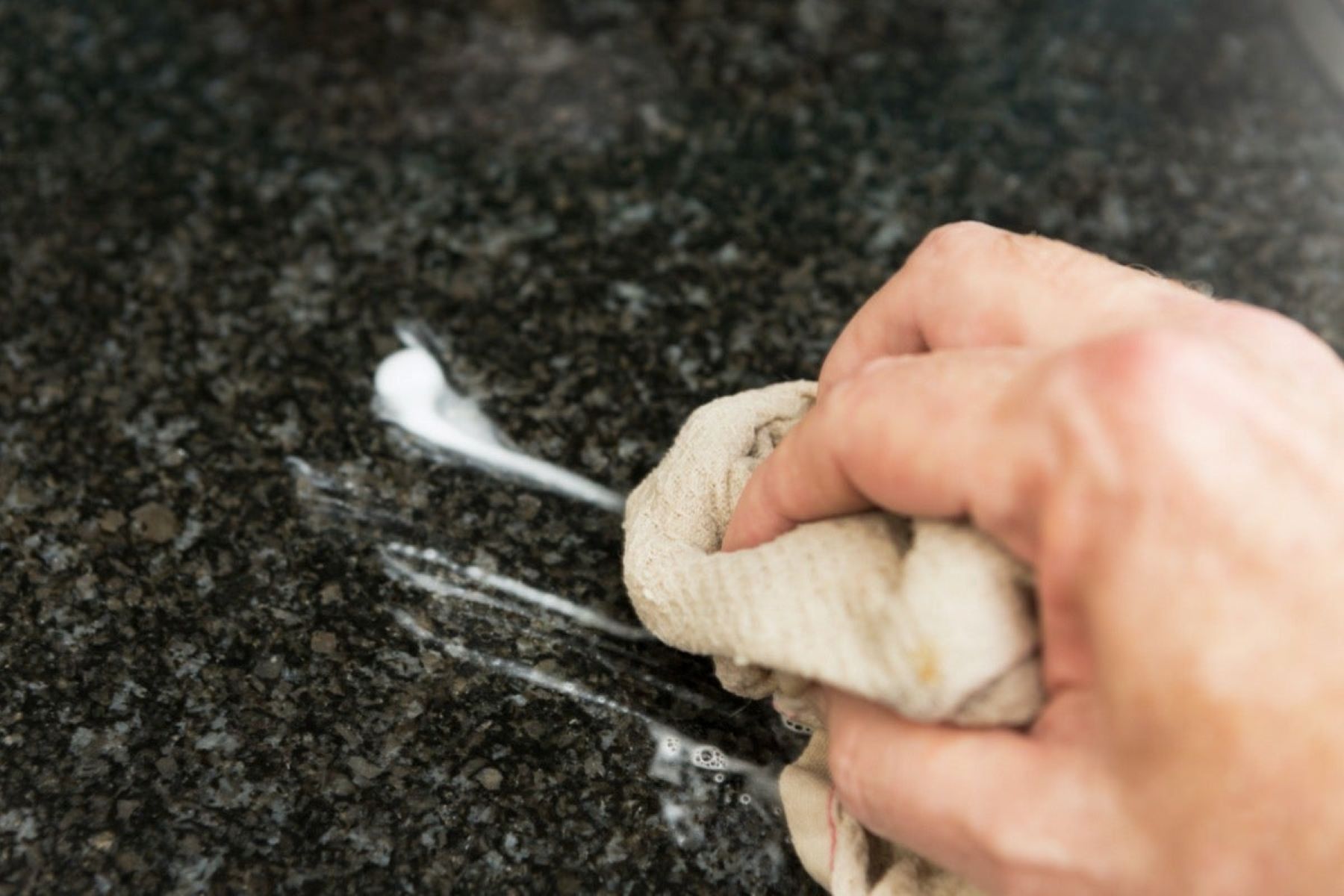
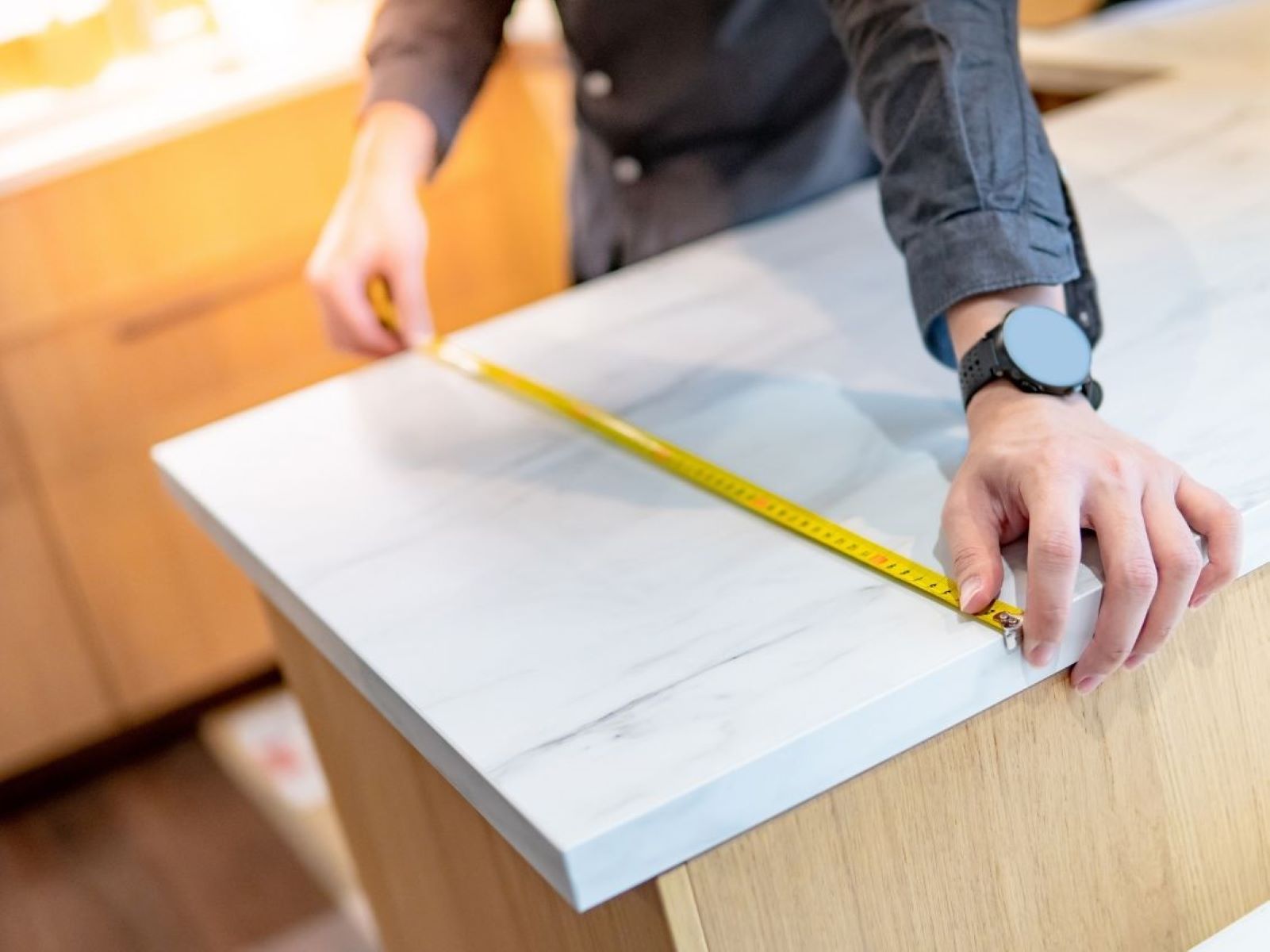

0 thoughts on “How Do You Clean Quartzite Countertops”